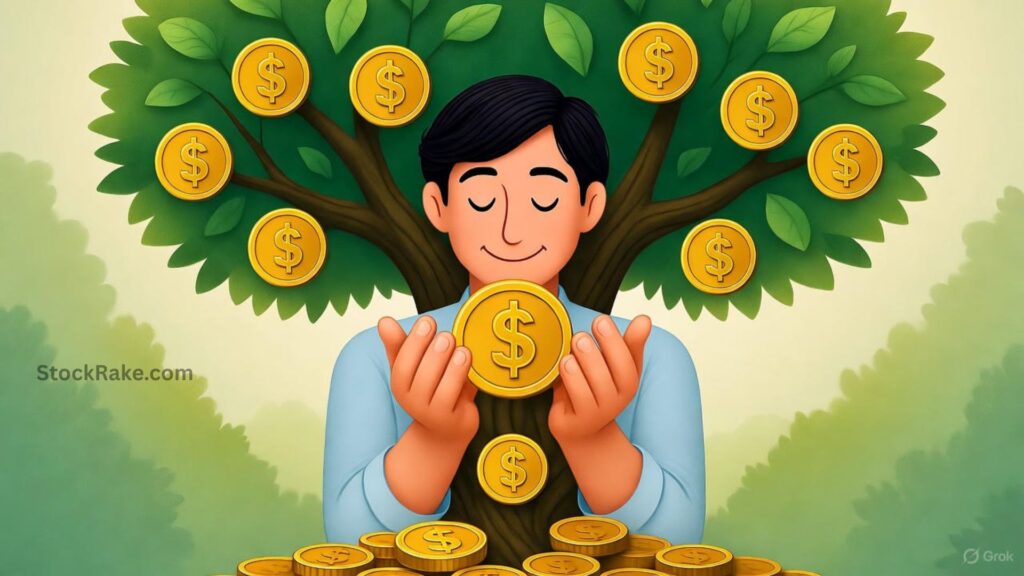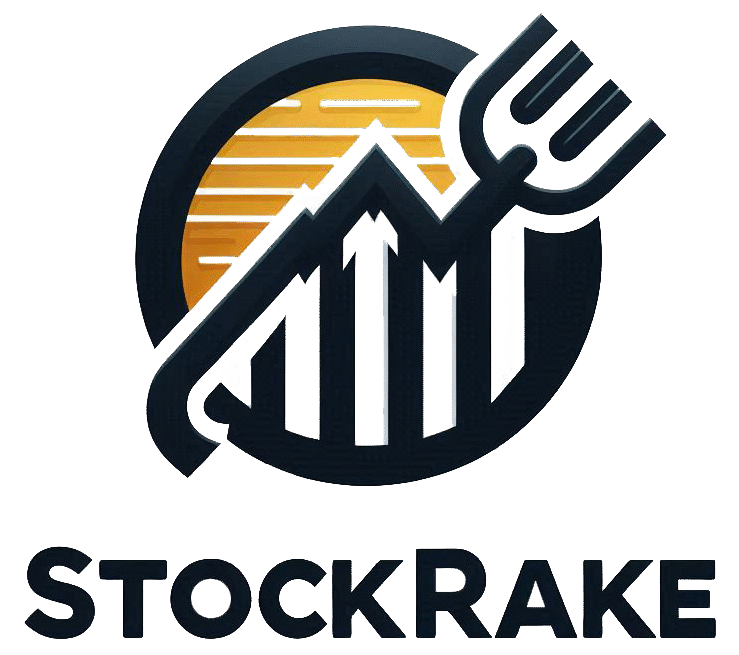Dividends are one of the most reliable ways for investors to earn passive income from their portfolios. They represent a company’s way of saying “thank you” to shareholders—by sharing a slice of its profits.
Whether you’re new to investing or looking to build a stable income stream, understanding dividends is essential. This guide breaks down how dividends work, why companies pay them, and how you can benefit—with real-world examples, expert insights, and actionable investing tips.
Understanding Dividends in Simple Terms
Think of dividends as rewards for loyalty. When a company earns profits, it can do a few things: reinvest them for growth, pay off debt, or distribute a portion to shareholders as dividends.

Most companies that pay dividends do so quarterly, although some pay monthly or annually. The board of directors decides how much to pay and when.
Dividends typically come in two forms:
- 💵 Cash dividends – Deposited directly into your brokerage account.
- 📈 Stock dividends – Extra shares issued instead of cash.
Some companies even maintain their dividend payments during tough years—just to reassure investors and maintain trust. That consistency often signals financial strength and stability.
💡 Why Dividends Matter to Investors
Dividends are more than just “bonus cash.” They reflect a company’s long-term confidence in its business. Firms that consistently pay (and increase) dividends—like Coca-Cola, Johnson & Johnson, or Procter & Gamble—tend to attract investors seeking dependable income.

In fact, many mutual funds and ETFs focus entirely on dividend-paying companies, offering investors a steady stream of income in addition to potential price appreciation.
According to Forbes and Investopedia, reinvesting dividends can significantly boost total returns through compounding, making them a key part of a long-term wealth strategy.
Who Gets Dividends and How?
To receive a dividend, timing is everything. You must own the stock before the ex-dividend date—the cutoff date that determines who qualifies.

Here’s how it works:
- Declaration Date – The company announces a dividend amount and schedule.
- Ex-Dividend Date – Buy the stock before this date to receive the next dividend.
- Record Date – The company checks shareholder records to confirm eligibility.
- Payment Date – The day you receive your cash or shares.
If you buy a stock on or after the ex-dividend date, you’ll miss that payout.
Dividends can be paid:
- Monthly
- Quarterly (most common)
- Annually
- Occasionally as special one-time dividends
Example:
United Bancorp once rewarded its shareholders with a special $0.15 per share dividend on top of its regular quarterly payout—a pleasant surprise for loyal investors.
🏦 What Kinds of Companies Pay Dividends?
Stable, profitable, and mature companies are usually the ones that pay dividends. These firms may not have as many high-growth opportunities, so they return profits to shareholders.
Common dividend-paying sectors include:
- 🏛️ Banking and Finance
- 🛢️ Oil and Gas
- 💡 Utilities
- 💊 Pharmaceuticals
- 🏠 Real Estate Investment Trusts (REITs)
- ⚙️ Basic Materials and Industrials
👉 Fun Fact:
Certain business structures—like REITs and Master Limited Partnerships (MLPs)—are legally required to distribute most of their income to shareholders, making them great sources of regular dividends.

Also Read: Which Tech Stocks Have the Highest Growth Potential?
Why Do Companies Pay Dividends?
Not all companies share profits this way. Startups and fast-growing tech companies (think Tesla or Amazon in their early years) often skip dividends because they need to reinvest every dollar into innovation and expansion.

That’s not a bad thing—it simply means they focus on growth over income. Investors in these firms usually profit through rising share prices rather than dividend checks.
However, when a long-time dividend payer cuts or suspends its dividend, it can be a warning sign that the business is under pressure.

Also Read: What Stocks Do Billionaires Keep Buying in 2025?
📅 Key Dividend Dates Every Investor Should Know
| Date Type | Meaning | Investor Action Needed |
|---|---|---|
| Declaration Date | Company announces dividend details | None – for information only |
| Ex-Dividend Date | Must own shares before this date to qualify | Buy before this date |
| Record Date | Company verifies shareholder list | Must already own shares |
| Payment Date | Dividend is paid out | Enjoy your payout! |
Understanding these dates helps you plan purchases or reinvestments strategically—especially if you rely on dividend income.

📉 Do Dividends Affect Stock Prices?
Yes, and it’s often temporary. When a dividend is announced, a company’s stock price may rise slightly because investors view it as a positive signal.
But on the ex-dividend date, the stock price typically drops by about the dividend amount—since new buyers won’t receive that payout.
Example:
If a stock trades at $60 and announces a $2 dividend, the price might rise to $62 on excitement. On the ex-dividend date, it often falls back near $60.
💬 Why Do Companies Pay Dividends?
There are several strategic reasons companies pay dividends:
- To reward loyal shareholders
- To signal financial health and confidence
- To attract income-focused investors
- To stabilize share prices by reducing volatility
Companies like Coca-Cola and PepsiCo have built reputations for decades of reliable dividend growth. On the flip side, overly large dividends can suggest a company has limited growth opportunities and is merely distributing profits instead of reinvesting.
Sometimes, dividend cuts aren’t all bad—they can indicate the company plans to redirect funds into high-return projects or acquisitions.
🏦 What About Dividends from Mutual Funds and ETFs?
Funds distribute income differently than individual stocks.
- Bond funds – Pay monthly dividends from interest earned.
- Stock funds or ETFs – Pay dividends based on income from their underlying stocks or from capital gains on sold assets.
It’s important to note: a fund paying high dividends doesn’t necessarily mean it’s performing well. Always check its total return—which includes both dividends and price changes—before investing.
Learn more about fund dividend distributions on Morningstar or FINRA.

Also Read: What’s the Best Way to Start Investing with $100?
💭 Are Dividends Really That Important?
Some economists argue dividends don’t change total wealth—since you could sell part of your investment for “income.” However, dividends remain popular because they:
- Provide predictable cash flow
- Encourage long-term investing discipline
- May offer tax advantages (depending on your country)
In short, dividends help investors weather market ups and downs without having to sell shares to generate cash.
💰 How to Invest in Dividend-Paying Stocks or Funds

If you’re ready to tap into the power of dividends, here’s how to start:
1. Choose Your Approach
- Individual Stocks: Gives you control and higher potential returns but requires research.
- Dividend Mutual Funds or ETFs: Provide diversification and simplicity.
2. Use Key Metrics
- Dividend Yield – Annual dividend ÷ share price.
- Payout Ratio – Portion of earnings paid as dividends (lower is safer).
- Dividend Growth Rate – Track companies that consistently increase payouts.
3. Consider Dividend Reinvestment
Many brokers offer a Dividend Reinvestment Plan (DRIP), which automatically uses your dividends to buy more shares—supercharging compounding over time.
4. Mind the Taxes
Some countries (like Hong Kong, Greece, or Slovakia) offer low or zero tax on dividend income. Always check your local regulations.
Final Thoughts
Dividends might seem like small bonuses, but over time they can significantly enhance your wealth—especially if you reinvest them.
Whether you’re after stable income, long-term growth, or portfolio balance, dividend-paying investments can play a vital role in your financial strategy.
Remember: Look for companies with strong fundamentals, a consistent dividend history, and sustainable payout ratios. Over time, that consistency can turn modest investments into impressive income streams.
Frequently Asked Questions (FAQs)
Q1. How often do companies pay dividends?
Most pay quarterly, though some pay monthly, annually, or as special one-time bonuses.
Q2. Can a company stop paying dividends?
Yes. If profits fall, a company can suspend or reduce dividends to conserve cash.
Q3. What’s a good dividend yield?
A yield between 2%–6% is typical for healthy, stable firms. Extremely high yields can signal risk.
Q4. Are dividends taxable?
In most countries, yes—but rates differ based on local tax laws and the type of account you hold investments in.
Q5. Should I reinvest dividends or take cash?
If you don’t need the income, reinvesting helps compound your returns faster.

